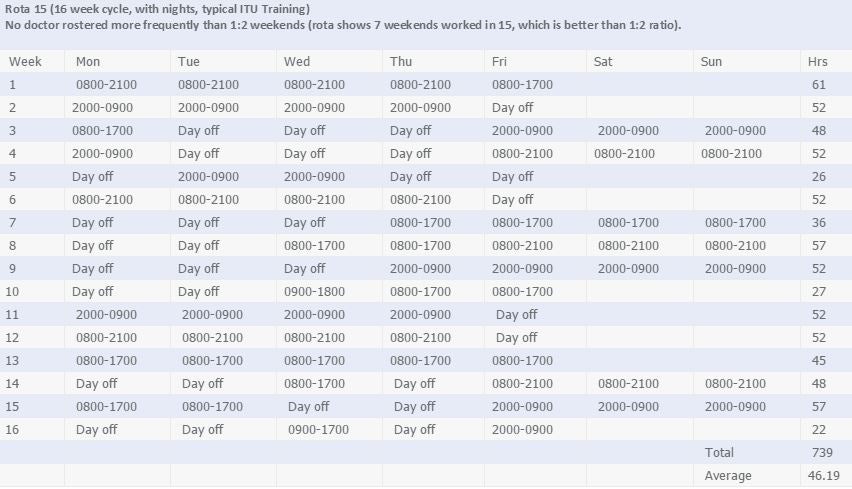Junior doctors furious NHS bosses' new 'sample' rotas will not guarantee no consecutive weekends
Rotas say no doctor will be forced to work half of all weekends in a 15-week period

Your support helps us to tell the story
From reproductive rights to climate change to Big Tech, The Independent is on the ground when the story is developing. Whether it's investigating the financials of Elon Musk's pro-Trump PAC or producing our latest documentary, 'The A Word', which shines a light on the American women fighting for reproductive rights, we know how important it is to parse out the facts from the messaging.
At such a critical moment in US history, we need reporters on the ground. Your donation allows us to keep sending journalists to speak to both sides of the story.
The Independent is trusted by Americans across the entire political spectrum. And unlike many other quality news outlets, we choose not to lock Americans out of our reporting and analysis with paywalls. We believe quality journalism should be available to everyone, paid for by those who can afford it.
Your support makes all the difference.Junior doctors are furious after updated "example" rotas showed them working as many as three consecutive weekends - despite politicians promising "no doctor will be ever be expected to work two weekends in a row".
Medics vented their frustration following the release of rotas by NHS Employers - the umbrella organisation representing all healthcare trusts - which only guarantee they will not work more than half the weekends in a 15-week period.
Many of them suggested on Twitter that the new rotas show NHS chiefs are out of touch with what it is like to work in the health service:
Health Secretary Jeremy Hunt originally said "no doctor will ever be rostered on consecutive weekends" during his speech in Parliament to announce he would "unilaterally" impose the contract on junior doctors after talks with the British Medical Association broke down.
In a statement on their website they said "no doctor will be expected to work consecutive weekends without their agreement" but an updated FAQ said instead doctors will not be forced to work more than half of weekends over a 15-week period (a ratio of 1:2).
Instead NHS Employers said they would issue "good practice guidance" asking trusts to avoid scheduling junior doctors to work consecutive weekends.
On Friday, Health Minister Ben Gummer wrote a guest blog for Mumsnet saying the new contracts were "a better deal for doctors as well as safer for patients".
He said: "The new contract will make it easier for hospitals to make sure there are enough doctors at weekends and will also protect doctors from working two weekends in a row, or even more hours than they do at the moment.
"No doctor will be ever be expected to work two weekends in a row. We hope this will improve work-life balance - an issue we take very seriously."

But Dr Mohsin Khan, a 28-year-old junior doctor working in London, told The Independent: "When the first rota came out last week I asked NHS Employers several times to clarify whether their rules or the minister's' words were incorrect, as they contradicted.
"They updated their rota over the weekend without explaining why it still didn't match the rules set out by ministers. The update now just said the rota was essentially one weekend in every two.
"NHS Employers may think no consecutive weekends is the same as a max average number of weekends going to the umpteenth decimal point - but tell that to your child if you don't see them for 3 weekends in a row because you're doing 13 hours shifts weekend after weekend."
Department of Health officials argue the rotas are illustrative, not indicative. They insist no junior doctor will be made to work consecutive weekends, but that they will be allowed to if they wish.
A spokesperson said: “The Secretary of State has been clear that under the new contract no junior doctor will be forced to work consecutive weekends - although he accepts the BMA argument that if doctors choose to work consecutive weekends, perhaps to allow them to take more time off subsequently, the new contract should not prevent this.
"This means doctors get the best of both worlds - a brake on being forced to work successive weekends combined with greater flexibility if they wish to improve work-life balance.”
Join our commenting forum
Join thought-provoking conversations, follow other Independent readers and see their replies
Comments